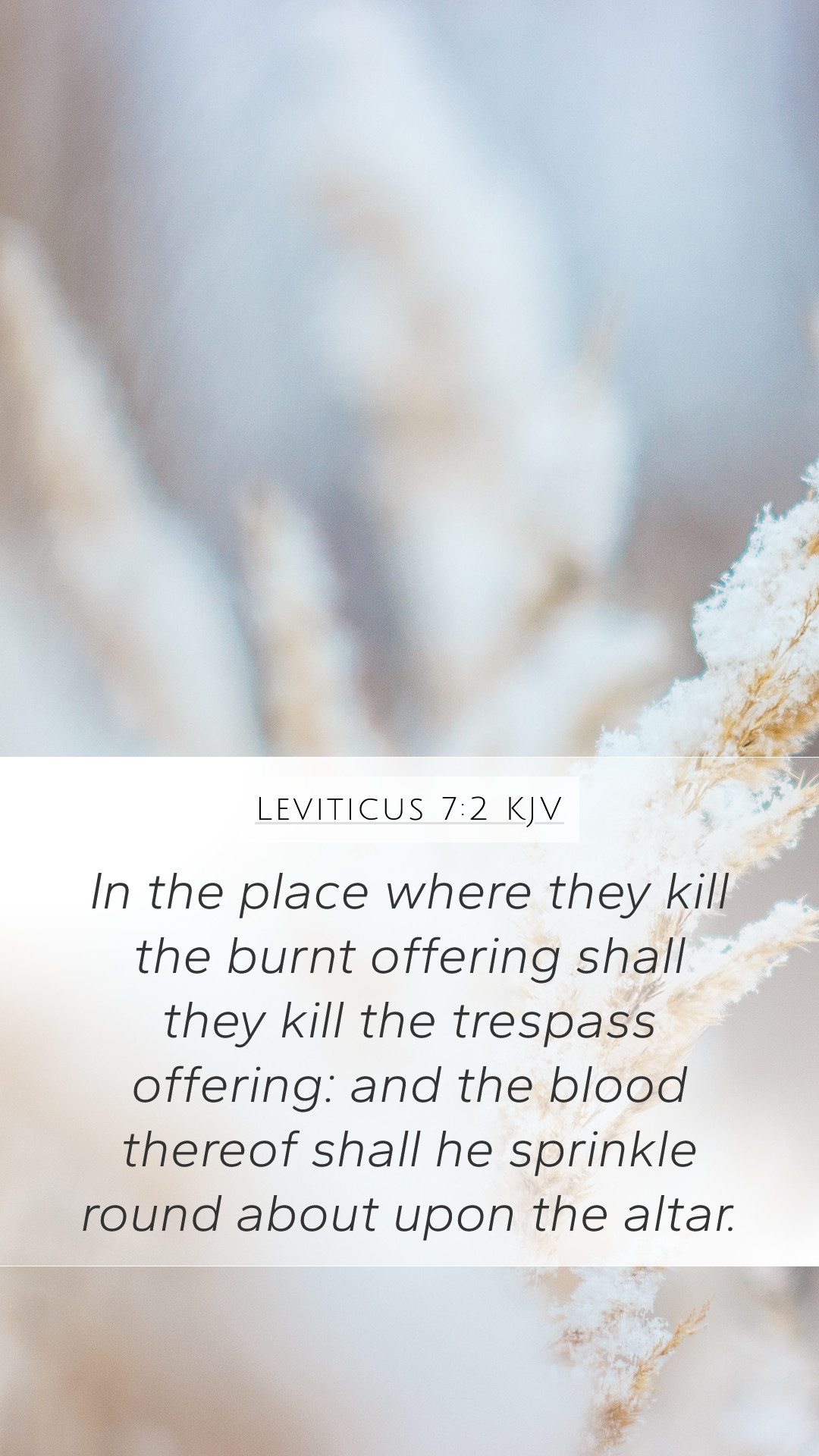Understanding Leviticus 7:2 - A Comprehensive Analysis
Leviticus 7:2 states, "And in the place where they kill the burnt offering shall they kill the trespass offering: and the blood thereof shall he sprinkle round about upon the altar." This verse is part of the larger framework of sacrificial laws established for the Israelites, reflecting their covenant relationship with God.
Overview of the Verse
This verse provides instructions regarding the presentation of the trespass offering in relation to the burnt offering. It emphasizes the ritualistic nature of these sacrifices, which were integral to the worship practices of ancient Israel.
Key Themes in Leviticus 7:2
- Sacrifice and Atonement: The act of offering sacrifices signifies the need for atonement for sins. By sacrificing an animal, the Israelites sought to restore their relationship with God.
- The Importance of Blood: The sprinkling of blood around the altar symbolizes the life of the sacrifice being offered to God, underscoring the seriousness of sin and the cost of redemption.
- Order in Worship: The specific instructions point to the orderly and communal aspect of worship within the Israelite community.
Bible Verse Meanings from Commentary Perspectives
Matthew Henry's Commentary
Matthew Henry interprets Leviticus 7:2 within the context of the sacrificial system. He underscores that the burnt offering and the trespass offering are both tied to the acknowledgment of sin and the need for atonement. He emphasizes the necessity and propriety of worship that honors the instructions given by God.
Albert Barnes' Commentary
Albert Barnes provides insight into the significance of these offerings. He notes the specificity of the procedures in the sacrificial system and how they illustrate the seriousness of sin and the importance of proper worship. Barnes highlights that the location of offering indicates a focus on holiness and the reverence due to God.
Adam Clarke's Commentary
Adam Clarke expands on the symbolism of the blood in his analysis. He argues that the actions commanded in this verse are not arbitrary but deeply significant for the spiritual life of the Israelites. Clarke relates this to the larger symbolism in Scripture, where blood represents covenant and expiation.
Historical Context of Leviticus 7:2
To fully grasp the meaning of this verse, understanding its historical context is essential. Leviticus is set within the Mosaic tradition where laws were given to guide the displaced Israelites in worship and community living. The sacrificial practices instituted were both a means of grace and a reminder of human frailty and need for redemption.
Relevance to Contemporary Readers
Many modern readers of Scripture may find it challenging to relate to ancient sacrificial practices. However, the underlying principles of atonement, communal worship, and God's holiness are still relevant. Understanding the significance of blood in the covenant helps believers appreciate the gravity of sin and the depth of God's grace—culminating in the ultimate sacrifice of Jesus Christ.
Cross References
- Exodus 12:13: Discusses the blood of the lamb as a sign of protection in the Passover.
- Hebrews 9:22: Talks about the necessity of blood for obtaining forgiveness.
- Leviticus 1:5: Details the procedures for the burnt offering.
Conclusion
In summary, Leviticus 7:2 serves as an important verse that outlines the rituals surrounding offerings, highlighting themes of atonement, worship, and the serious nature of sin. Insights from prominent commentaries deepen our understanding and provide a foundation for applying these ancient truths in our contemporary lives.
SEO Insights
For those engaged in Bible study groups or seeking online Bible study resources, exploring scripture with such depth can enhance Bible study lessons and facilitate Bible study guides. Engaging in in-depth Bible verse analysis and understanding the historical context of Bible verses allows for richer Bible study insights and assists in effectively applying Bible verses to daily life.


